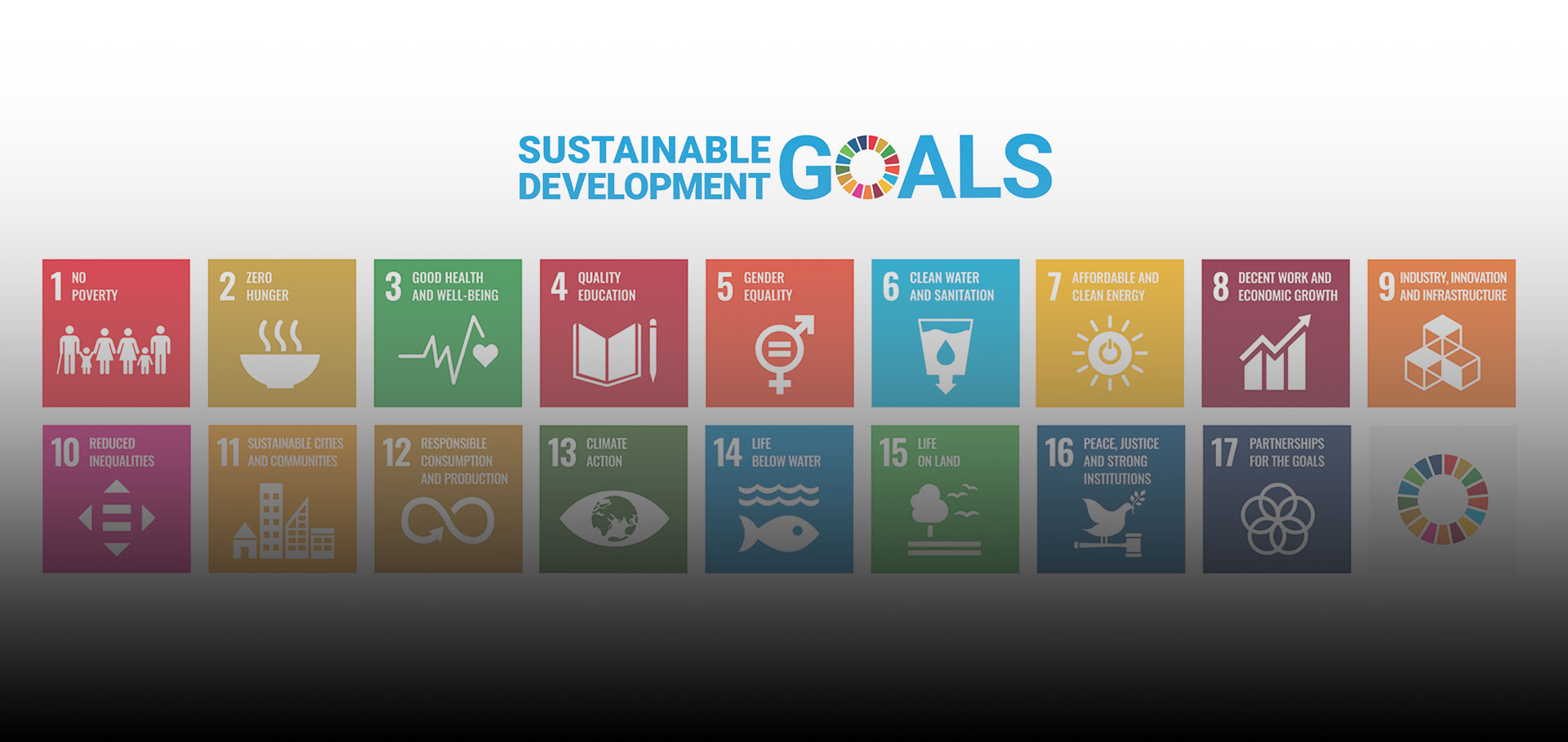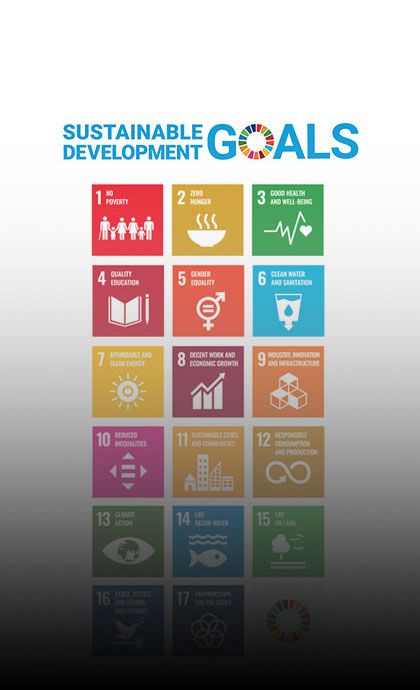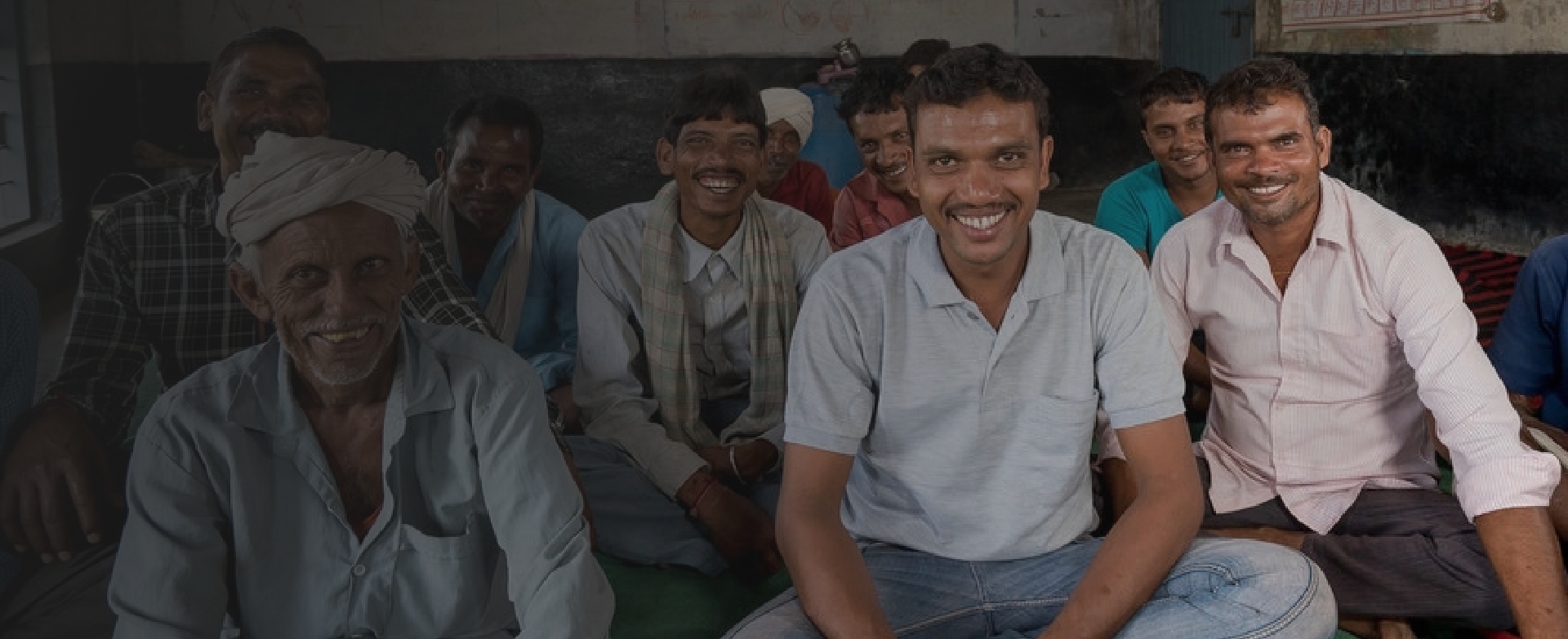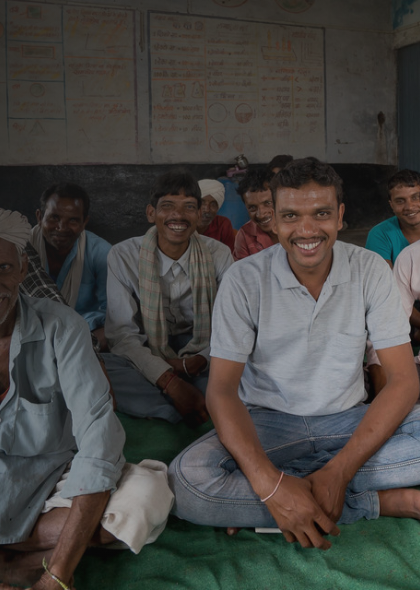The Sustainable Development Goals aim to end poverty “in all its forms, everywhere”, while leaving no one behind. This ambition is central to Fairtrade’s mission.
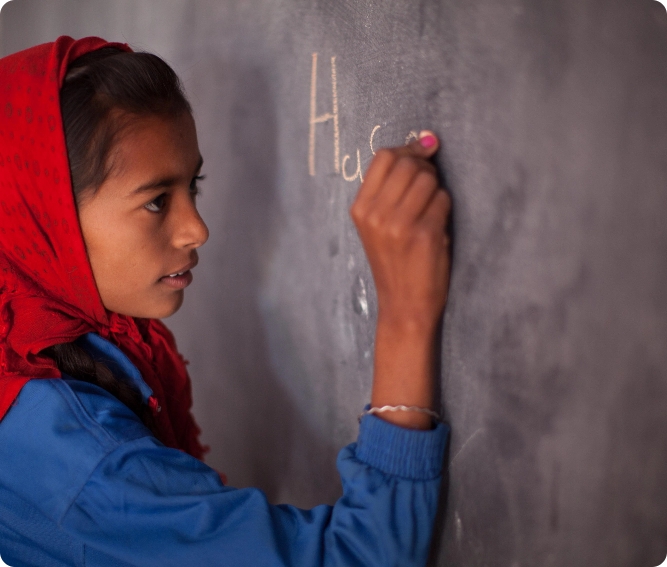
Making a
poverty free world
The Sustainable Development Goals (SDGs) – adopted by the United Nations General Assembly in September 2015 – are an ambitious set of 17 overarching global goals to combat poverty and achieve sustainable development by 2030. Covering topics from gender equality to climate change, and education to clean drinking water, they represent a powerful opportunity to improve the lives of the 1.3 billion small scale farmers and agricultural workers upon whom the world depends to produce our food and protect our planet.
The ambition is laudable, but there is still a long way to go to achieve many of the goals. Despite progress, more than 780 million people live below the international poverty line. Worldwide, 152 million children are still involved in child labour. And climate change threatens to reverse progress on all levels. What’s more, the goals only provide a framework. It’s up to governments but also businesses and civil society to take action to ensure they are achieved.
Fairtrade
establishing goals
There is a large amount of cross-over between the SDGs and Fairtrade’s work. We break down the systems that trap farmers in cycles of poverty through changing the financial game.
The foundation of the Fairtrade system is our unique pricing model. It has two parts:
1. The Fairtrade Minimum Price is a floor price that we set (and periodically update) that aims to cover the costs of sustainable production. It is established through an intensive consultation process with farmers, workers, traders and businesses. Think of this as a safety net for farmers and workers when the market price falls below a sustainable level.
2. The Fairtrade Premium is an additional lump sum that Producer Organisations receive. Members democratically decide how to spend the money. The key here is that we believe local communities know best what they need—so neither Fairtrade nor companies they sell to can instruct them how to spend their Premium. The results are incredible. We have seen Producer Organizations invest in making their businesses organic, updating farming equipment, building schools, providing scholarships, creating clinics and other social services—just to name a few.
The Sustainable Development Goals that Fairtrade works towards are as follows:
End poverty in all its forms everywhere
This goal is central to Fairtrade’s mission. We seek to ensure that farmers and workers make strong progress towards a living income and living wages.
End hunger, achieve food security and improved nutrition and promote sustainable agriculture
Small-scale farmers continue to provide a large percentage of the world’s population with food. Building robust livelihoods is crucial for achieving this goal. In addition, farmers and workers earning a dignified income or wage will be able to better provide for their own families.
Ensure inclusive and equitable quality education and promote lifelong learning opportunities for all
Equitable access to training and informal education for adults and youth will increase future opportunities available to all. Fairtrade farmers and workers choose to spend a portion of their Fairtrade Premium funds on children's education, while the three Fairtrade producer networks invest significantly in training and learning opportunities for producers.
Achieve gender equality and empower all women and girls
The UN Food and Agriculture Organization (FAO) has identified that overcoming gender inequalities can reduce the number of hungry people in the world by 150 million. Fairtrade supports women to participate equally in their cooperatives and workplaces, earn better wages and diversify their incomes. A push for equity will result in increased opportunities and representation for women as well as young people.
Promote sustained, inclusive and sustainable economic growth, full and productive employment and decent work for all
In line with the UN International Labour Organization and national legislation, Fairtrade promotes better working conditions, supports workers to negotiate for better pay and is striving to achieve living wages for workers on Fairtrade plantations. Our standards prohibit child and forced labour and we work with young people, their communities, producer organizations and governments to enable them to tackle the root causes themselves.
Build resilient infrastructure, promote inclusive and sustainable industrialization and foster innovation
Fairtrade Standards and resources like the Fairtrade Premium mean that farmers and workers are in control of investments in their businesses and communities. We are also aiming for supply chains to be fully traceable and transparent, so producers can make informed business decisions and deepen their relationships with their trade partners.
Reduce inequality within and among countries
We call for trade policies and collective action that will unlock greater benefits from trade for all farmers and workers. Fairtrade prices and Premium are a safety net, and our living income and living wage strategies provide a pathway towards decent livelihoods for more people. Inclusion efforts and economic interventions will lead to greater gender equality, increased opportunities for young people, and reductions in discrimination.
Make cities and human settlements inclusive, safe, resilient and sustainable
Producer organizations are pillars in their communities. They invest Fairtrade Premium funds to improve infrastructure and services and build resilience in the face of climate change.
Ensure sustainable consumption and production patterns
Fairtrade is the leading ethical label worldwide. Through our campaigns and advocacy work, we bring together thousands of communities and millions of citizens worldwide to campaign for fairer trade. Shoppers, producers and advocates are working together to push for social and climate justice.
Take urgent action to combat climate change and its impacts
Small-scale farmers are already bearing the brunt of a changing climate. Fairtrade works with producer organizations and climate experts to build farmers’ resilience to climate shocks and stresses and apply environmentally sustainable practices.
Protect, restore and promote sustainable use of terrestrial ecosystems, sustainably manage forests, combat desertification, and halt and reverse land degradation and halt biodiversity loss
Fairtrade Standards requirements and climate resilient practices will reduce pressure on protected areas and forests, and reduce loss of biodiversity.
Strengthen the means of implementation and revitalize the global partnership for sustainable development
Power imbalances in supply chains that favour companies over small-scale farmers in developing countries can be a barrier to implementing the SDGs. Fairtrade works with multiple partners – producer organizations, businesses, trade unions, civil society, governments and other multi-stakeholder bodies. Fairtrade is leveraging these relationships to co-create new pathways towards impact.
Get Involved
Make Fairtrade part of your everyday life. Find out how you can get involved in the movement to make trade equitable and sustainable.
Join the movement